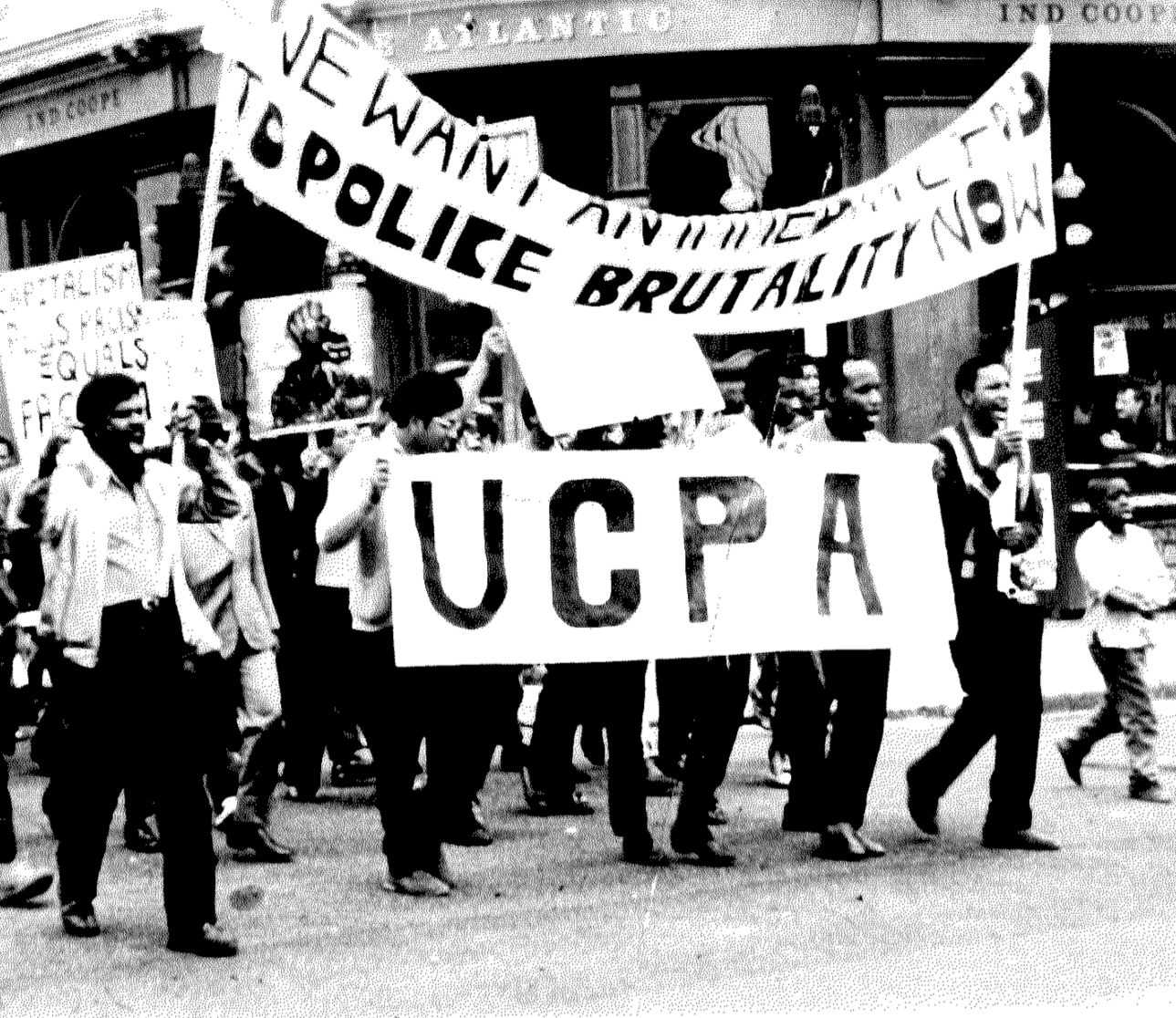‘…the public image of the policeman has changed from that of the citizen in uniform to the paramilitary riot controller behind whom lurks the shadow of the soldier.’
Professor Terence Morris
The measure of a society’s freedom is, in the final analysis, the measure of the accountability of its police force to the public it serves. The more the seat of such accountability is shifted from the public to the government, the more also is the public removed from government. And where that shift to authoritarianism first manifests itself is in the distinction the police makes between its publics, as to whom it shall serve by consent and whom control by force — and in forcing, remove them from the public domain, ‘De-citizenise’ them.
The black community has been so removed — from its governance of the police and its full participation in government.
Almost ten years ago, in our evidence to the Royal Commission on Criminal Procedure, we had pointed out that Britain was dangerously close to becoming ‘two societies, one black, one white, separate and unequal’ and that the police were playing no small part in that process. Since then, a greater economic schism has overtaken the national and altered the balance of social force, allowing a few blacks to ascend to the monetarist heaven while damning the many — and the young among them — to the workless wastes of the inner city. Hence, it is a whole under-class of blacks rather than black people per se who have come to be marked out as separate and unequal — and the differential policing they had been subjected to raised now to the level of normalcy.
The inner-city rebellions of ’81 and ’85 sparked off invariably by aggressive policing, bore witness to that growing divide, but the social an economic conditions which gave rise to it remain starkly unchanged. Consequently, the unemployment and social deprivation that have bitten into these areas, compounded and underlined by racism, now require more systematic police surveillance and special policing of whole communities. And this has been accompanied by a basic shift in the whole centre of gravity of policing from ‘law and order’ to ‘public order’.
Former Police Commissioner Newman indicated as much when, in a speech to the Society of Conservative Lawyers earlier this year, he identified inner-city areas, with their ‘Highest crime rates, the most widespread and most established drug abuse and the greatest potential for public disorder’, as those which presented ‘a challenge to the style of British policing upon which we have relied since the foundation of the Metropolitan Police in 1829’. The police, he went on to say, ‘have to take positive and specific action , in such places, carefully managed and persistent action, to prevent the sort of divided society developing of which Lord Scarman speaks, and of which we have seen the nadir in Northern Ireland.’
But the prevention of ‘a divided society’ is the business of the government and political parties, not the police. Conversely, the moe a government rules without reference yo whole swathes of people — poor blacks, working class, workless — using the consent it gains from some to coerce the obedience of others — and, in that exercise, sets the police against a section of the public — the more does it devolve its authority on to the police. Worse, such political use of the police force makes the police itself more political –to the point where Police Chief Newman could declare, in reference to the possible use of XS gas and plastic bullets, that he was now putting ‘all people of London on notice’ of the Police Federation imply that a Labour government may not have the cooperation it desires from the police unless it cooperates with the police.
The portents are all here in the pages of this document. And the warning is here: that as the police force shades over, be it in the tiniest of its constituencies, from being the servant of the law to becoming a law unto itself, so too the government shades over from democracy to authoritarianism.

